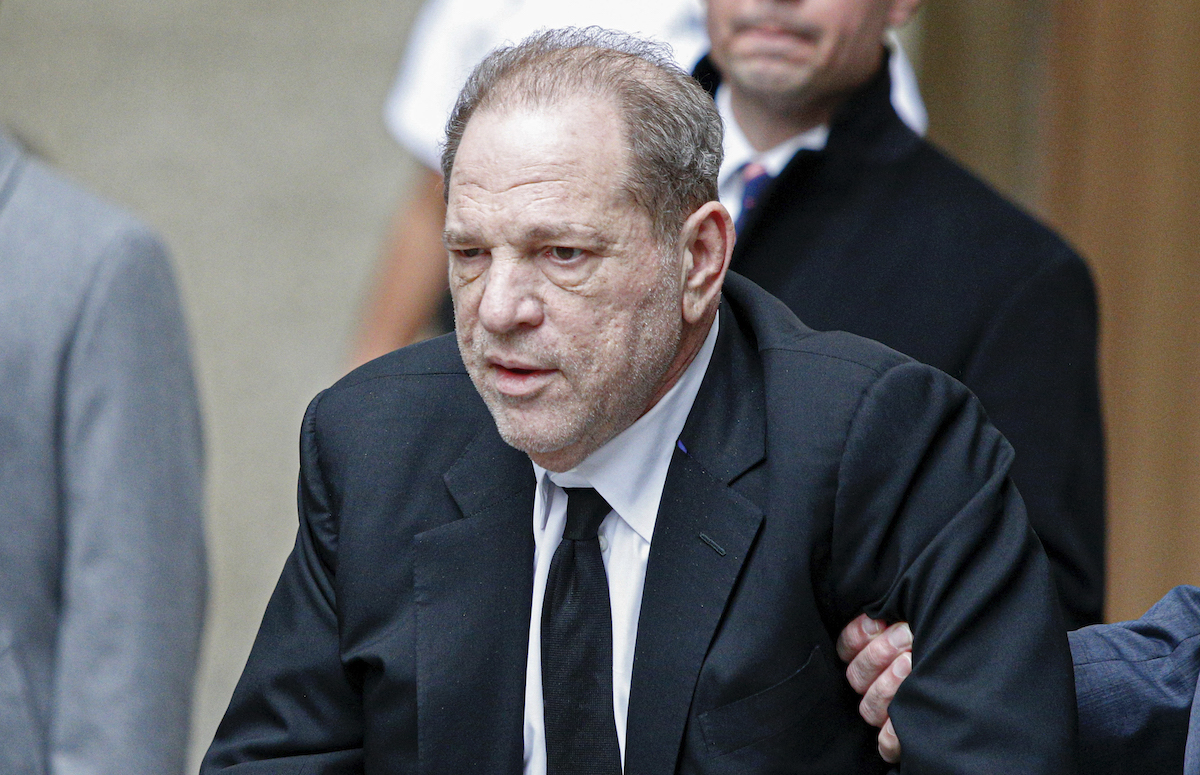
Harvey Weinstein sentenced to 23 years imprisonment for sexual assault
Harvey Weinstein was sentenced to 23 years in prison on Wednesday under charges of rape and sexual assault.

Harvey Weinstein was sentenced to 23 years in prison on Wednesday (March 11) under charges of rape and sexual assault.
Weinstein, who has been accused of sexually assaulting numerous women, was convicted last month of raping an actress in a New York City hotel room in 2013 and forcing himself on former TV and film production assistant Mimi Haleyi at his apartment in 2006.
Weinstein was convicted on two charges – criminal sex act for the 2006 assault on the production assistant and rape in the third degree for a 2013 attack on another woman. He was acquitted of the more serious charges against him – first-degree rape and two counts of predatory sexual assault.
Just as jury selection was about to get underway in January, Weinstein was charged in California with raping a woman at a Los Angeles hotel on February 18, 2013, after pushing his way inside her room, and sexually assaulting a woman in a Beverly Hills hotel suite the next night.
He faces a maximum of 29 years in prison.
Related news | Harvey Weinstein jury indicates it is split on most serious counts
Both women confronting Weinstein again in court on Wednesday after their testimony helped seal his conviction at the landmark #MeToo trial.
“It takes a very special kind of evil to exploit connections to leverage rape,” said the 2013 rape accuser. “Rape is not just one moment of penetration. It is forever,” added the woman.
Before the verdict, Weinstein pleaded for mercy and said his empathy has grown since his downfall.
He told the court he felt remorse for this situation but said he was perplexed by the case and the #MeToo climate in which it unfolded. “Thousands of men are losing due process. I’m worried about this country,” he said, arguing that men were being accused of things that “none of them understood”. “I’m totally confused. I think men are confused about these issues,” he said, adding that he had fond memories of his accusers.
Looking back during the trial at emails they exchanged, he said, he thought they had a good friendship. “I had wonderful times with these people,” he claimed.
Related news | Harvey Weinstein trial postponed to September
Weinstein was the executive behind Oscar-winning films as Shakespeare in Love and Pulp Fiction. Rumours about his behaviour first came to light in The New York Times and The New Yorker in 2017.
More than 90 women, including actresses Gwyneth Paltrow, Salma Hayek, and Uma Thurman, came forward to accuse Weinstein of sexual assault and sexual harassment. The takedown energized the #MeToo campaign to speak up about sexual assault and holding perpetrators accountable.
The New York case was the first criminal matter to arise from accusations of more than 90 women.
One of Weinstein’s lawyers, Donna Rotunno, told the court he faced an uphill fight from the start of the trial, with media coverage of his allegations and the #MeToo movement making it impossible for him to get a truly fair shake. “How can we deny the fact that what happened before we walked in here had an impact?” Rotunno asked.
Weinstein’s lawyers pleaded for leniency because of his age and frail health, and prosecutors, who said the man was once celebrated as a titan of Hollywood deserved a harsh sentence that would account for allegations of wrongdoing dating back decades.
Related news | Weinstein expert questions memory as testimony nears end
Weinstein was sentenced a week before his 68th birthday, and his lawyers argued that a lengthy prison term would, in effect, be a life sentence. They had sought a five-year sentence.
Weinstein used a walker throughout the trial and arrived at the courthouse on Wednesday in a wheelchair because of back problems from a car crash last summer. He has a condition that requires shots in his eyes and last week had a stent placed to unblock an artery.
The agency that runs New York’s state prisons said every inmate is evaluated to determine which facility meets his or her security, medical, mental health and other needs.
(With inputs from agencies)

